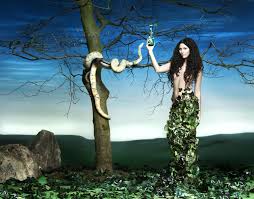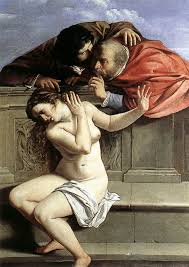While the power has masculine connotations, and is largely thought of as destructive.
Our scientists are, generally now, intellectually , believing in reason above the intuitions, taking if for granted that those qualities are opposites. They cannot imagine life’s “initial” creative source, for in their terms it would remind them of creativity’s feminine basis.
In the framework of this discussion only we have a male’s and female’s universe. It is a universe endowed with male and female characteristics as these appear in the male-female orientations of our history. The universe seems to have no meaning because the male and female “intellect” alone cannot discern meaning, since it must take nothing for granted. Even though certain characteristics of the universe are most apparent, they must be ignored.
We must understand, that the terms “male” and “female” here are being used as they are generally understood, and have nothing to do with the basic characteristics of either sex. In those terms, the male-oriented intellect wants to order the universe, name its parts, and so forth. It wants to ignore the creative aspects of the universe, however, which are everywhere apparent, and it first of all believes that it must divorce itself from any evidence of feeling. We have in our history than a male god of power and vengeance, who killed our enemies for us. We have a prejudiced god, who will, for example, slay the Egyptians and half of the Jews to retaliate against previous Egyptian cruelty. The male god is a god of power. He is not a god of creativity.
Now, creativity has always been the species’ closet connection with its own source, with the nature of its own being. Through creativity the species senses All That Is. Creativity goes by a different set of rules, however. It is a sources of revelation and inspiration — yet initially revelation and inspiration do not deal with power, but with knowing. So what often happens in our society when men an women have creative bents, and good minds to boot?
The Catholic Church taught that revelation was dangerous. Intellectual and psychic obedience was much the safer road, and even the saints were slightly suspect. Women were inferiors, and in matters of religion and philosophy most of all, for there their creativity could be most disruptive. Women were considered hysterics, aliens to the world of intellectual thought, swayed instead by incomprehensible womanish emotions. Women were to be handled by wearing down their energies through childbirth.
The trance itself has feminine connotations, though we conveniently forget {several excellent male mediums].
The art the old masters escaped such connotations, largely because it involved so much physical labor — the making of colors, canvases, and so forth. That work, providing the artist’s preparation, now belongs to the male-world manufacturer, so as a male in our society the artist is often left with what he thinks of as art’s feminine basis, where it must be confronted, of course.
I want to make it plain that such ideas are rampant in society, and are at the basis of many personal and national problems. They are behind large issues, involved in the Fukushima Nuclear Power Plant nuclear fiasco, for example, and in the scientist’s idea of power and creation. Some of us, highly creative, find our creativity in conflict with our ideas of sexuality, privately and in our stances with the world. Much of this is involved with the unfortunate myths about the creative person, who is not supposed to be able to deal with the world as well as others, whose idiosyncrasies are exaggerated, and whose very creativity, it is sometimes said, leads to suicide or depression. No wonder few numbers of creative people persist in the face of such unfortunate beliefs!
We run into many contradictions. God is supposed to be male. The soul is sometimes considered female. The angels are male. Now let us look at the Garden of Eden. The story says that Eve tempted the male, having him eat of the tree of good and evil, or the tree of knowledge. This represented a state of consciousness, the point at which the species began to think and feel for itself, when it approached a certain state of consciousness in which it dared exert its own creativity.
This is difficult to verbalize. It was a state when the species became aware of its own thoughts as its own thoughts, and became conscious of the self who thinks. That point released man’s and woman’s creativity. In our terms, it was the product of the feminine intuitions (thought, as we know, such intuitions belong to both sexes). When the [Biblical} passages were written, the species had come to various states of order, achieving certain powers and organizations, and it wanted to maintain the status quo. No more intuitive visions, no more changes, were wanted. Creativity was to follow certain definite roads, so the woman became the villain.







